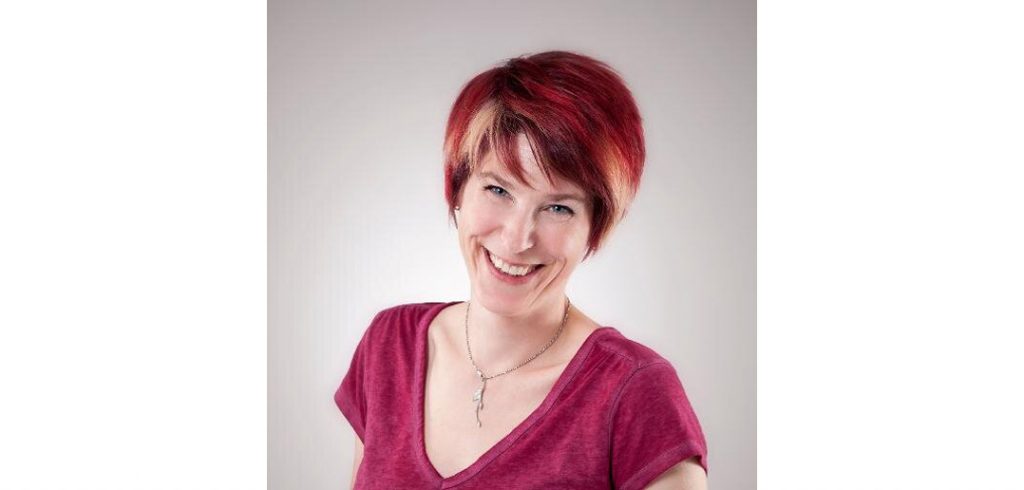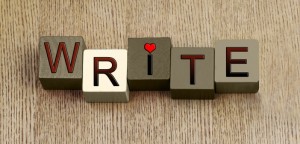Two-and-a-half years ago, James Chartrand shocked writers across the globe with her post on the well-read site Copyblogger, titled “Why James Chartrand Wears Women’s Underpants.”
Somebody had “outed” her as a woman writing under a male pseudonym, so she responded in-kind and told her stirring story.
To date, that post has received 767 comments and 2,300 Facebook Likes.
But gender issues aside, it’s her inspiring tale of building a stellar writing business from scratch in just six years that’s the real jaw-dropper. James — who still writes and works under her pseudonym — went from teetering on welfare to creating a well-respected writing firm, Men With Pens. With clients across the globe, glowing accolades for her work, and mentions everywhere from The New York Times to Forbes and The Huffington Post, she has no plans to slow down.
The best part, though, as I discovered while interviewing her, is that she’s delightful — and extremely down to earth. She’s done what most writers aspire to do, yet she remains level-headed and family-focused.
I spoke with James on a warm Wednesday morning from her home office in Montreal. What I appreciated most after speaking with her, was her incredible willingness to do what’s needed in order to pursue what matters to her most. What becomes clear as you read about her path to a high-earning writing career is that she constantly pushes herself to improve rather than stopping to admire all she’s done.
Now that she’s weathered the storm surrounding her own chosen name, you’ll learn James’s personal slant on when it’s appropriate to use a pseudonym. Plus, you’ll discover the number one step she recommends you take to look like a professional, as well as a challenge she has in common with nearly all writers.
Most importantly, if your mission in life is to communicate clearly and passionately — and get paid for it — you’ll appreciate the advice James shares on how you can make life as a paid writer as easy as making toast — literally.
***
Tell me James, how did you first get started as a writer?
I had a corporate job for several years and was reorganized within the company, so I decided to take a leaving package. I worked at some stables for a year’s time and that was a great experience. But I live in a small, touristy town and it’s a tough economy, so after a while, the work ran out and the money started running out. I was alone, I had two kids to support, and I just didn’t know what to do.
Someone said to me, “You write well. There’s got to be somebody online who might want help with writing work.” So I just started Googling around and realized there is writing work. Of course, the first thing I stumbled on, like most people looking online for writing work, is the content writing mills in which you write 500-word articles for, like, a dollar. But I basically thought that was heaven-sent by God — “Somebody’s going to pay me for my writing!” So I started there.
My first paycheck was eight dollars. At first, I thought I’d died and gone to heaven getting paid to write! But it wasn’t long before I realized that was a lot of work for not a lot of money.
So I started expanding by hiring writers to work for me, and at the same time upped my rates just a little bit. I would land projects, my writers would do the work, and I subsidized my income from there.
Then I realized I could make a legitimate business out of outsourcing writing projects and still charge my clients a decent wage for the content, and that’s pretty much where I took off. I got some business-sense into me and I built up Men With Pens to what it is today.
That’s such an inspiring story, especially because you were so quick to hire other writers.
Yeah, I started in June or July of 2006 and by December I had hired my first writer. So within six months, I realized outsourcing writing projects could be a legitimate business, it can be run like a business, and there was no reason for me to do it on my own. Of course, I still kept writing myself, I didn’t just do the administration.
A lot of new writers are afraid to partner and outsource because they’re worried they’ll make less money. What made the difference for you?
I personally find that writing is very dependent on how much time you have to write, how you feel, how creative you are that day, and so forth. If you have lots of laundry and dishes or kids to take care of, that affects your writing. So a lot of factors go into how much work you can actually do.
By partnering you can get a lot more done, you can provide a lot more to clients, and as a result earn a lot more money.
I understand the difficulty and concerns about wanting to partner with other people. There are certainly challenges to working with other people and the hiring process isn’t easy. In my experience, I’ve come across plenty of people who don’t work hard or who don’t do good work and it can be a pretty heart-wrenching process. But I’ve also hired some very good people, too.. There are people I work with today that I’ve been with for at least five years and I wouldn’t give them up for the world. And there are others that did not last even a month and it was like, “Thank you very much. Goodbye.”
You’ve done what a lot of our readers dream of — starting from scratch, you built an admirable writing business that lets you comfortably support your family. Can you tell me who inspired you most?
I have to say, and he’s probably going to grin about this, but Brian Clark of Copyblogger has always been the person that I’ve said in my mind I want to “chase his tail.” I want to be the person that’s coming out of left field and to take over his empire. Now of course, I’ll probably never be able to do that because Brian Clark is the king fish. But it’s good to have someone that’s just always a level above you, who you can continually chase after and watch and learn from. Brian was the one who inspired me from the start. I thought, “Yeah, he’s really got it going on and I want to be like him!” And to this day, I still want to be like Brian. (You’re welcome Brian, I love you very much!)
He certainly is admirable! Changing directions, your story about using a masculine pseudonym is now public. If you had it to do over again, would you still launch your writing business with a masculine pseudonym?
You know, I’ve thought about that question a lot because it’s a difficult one to answer. All things being exactly the same, if I found myself in the very same situation under the very same conditions, I probably would. It worked and it worked well. At that time, it was a very rough thing to do. It wasn’t thought out or preplanned by any means. It was just an impulsive idea.
I opted for a pen name because I didn’t want to be associated with my current business at the time, and I picked a name that I thought commanded respect, and that happened to be a male name. I still feel there is gender bias out there. I think it’s still very strong and I know that some people would like to say there is none, but I see examples of it around me every day.
So it’s an effective strategy. But I actually find the name a little limiting now because I can’t really go with my own name. All my work is published under James Chartrand, so if I use my given name, people sometimes don’t believe I actually wrote it. Right now it’s a limitation to me, but I haven’t found the ultimate way to break that in a way that would be profitable and successful and a smart thing to do. So when I stumble upon it, I’ll make it work.
Would you ever recommend that a new writer use a pseudonym? Not necessarily to adopt a different gender, but as a way to break free from any self-doubt or preconceived notions they have about themselves?
That’s a good question, and I’m glad you framed it in that way — using potential self-doubt and how people feel about themselves. Using a pseudonym is really very common, especially in specific industries like fiction writing or Hollywood acting. I think it’s a good way to free yourself of certain beliefs you might have about yourself or to gain certain confidence that you don’t feel you have under your given name, based on your own self-perception. There’s a lot of psychology that goes into what happens when you use a pseudonym. And there’s a lot of psychology behind the reasons why you might want to.
But I’ve certainly seen some people who have specific names that might be related to a certain culture or certain countries who are looked at unfavorably in the world. They might want to use a plainer, more Anglo-Saxon name to be able to break into the industry or to remove their own self-barriers about doing business in an American world. So it has its place. It has its time and it has its limitations as well. Do I recommend it or not recommend it? It depends on the situation and what the person is facing.
Makes perfect sense. Now can you tell me what kinds of investments you’ve made in your writing career that have paid off well over the years?
I continually self-invest. I like to learn as much as I can about my own industry and different types of writing — fiction writing, copywriting, sales writing. But I also like to learn about stuff like sales marketing, negotiation, and business administration. I just basically eat up any knowledge I can find that might relate to my business in any way. So self-improvement is very, very important to me.
There’s no skill under the sun that you can’t learn. You just need the time to do it. And all these skills are very, very valuable as business assets. Of course, I’ll always reinvest into my own company. I spend money on better website design — in fact, my site will be rebranding soon with a new look. I try to improve our processes. I try to improve our copywriting. The copywriting on my own site has changed many times over the years as I try to find that magic recipe.
What tools or habits do you use to keep organized?
That’s a big one. Gmail is my friend. I use Gmail constantly. I use G-chat constantly. Beyond that, every single tool that I have ever touched has worked fantastically for two weeks and then I find myself not using it. So the fewer tools I have, the better. I’m very slow to embrace technology because of this. I tend to get excited about the latest app or the latest software that helps you do whatever, but the truth is, it’s mostly how I organize my time that helps me get things done. For example, in the morning, I try not to read my e-mail and I sit down and read a book instead to let me wake up my brain a little bit. Then I sit down and start writing. I try to avoid gadgets. They just don’t work for me. The fewer, the better.
That’s a smart approach — to know your limits. Now, can you tell me one thing about you no one knows?
I’m insecure. How’s that?
I imagine many of our members can relate to that too.
I think I convey huge confidence, and I do have huge confidence. And I convey a slight touch of arrogance. I am arrogant. I’m bold. I have all these great qualities so I can walk into a room and attract attention. But deep down inside, like anyone else starting out, I have some pretty big insecurities and I’ve been working on them over the years. And some of them are things like, well for example, talking on the phone in an interview call. I pace the hall for about 15 minutes before every call wondering if I’m going to say something stupid. Which is dumb in itself, because I know I have something to say that people want to hear.
But you know, it’s always inside you — “I hope I don’t screw up!” Approaching people in our business I admire, asking for something that I want, and giving them something in return, that’s still a big challenge for me. I get nervous asking Brian Clark for favors or for an extra hand with something. And the truth is, everybody, no matter how much they’ve got it going on, has a touch of insecurity somewhere in their lives.
Do you do other types of writing besides copywriting or marketing writing?
I do all kinds of things. I like to do web copy and sales copy, newsletters, and blog posts … a little bit of fiction on the side. I don’t think there’s any type of writing I don’t do except for poetry. You’ll never catch me writing poetry. It’s just not something I care for.
What do you do to unwind after a long day of writing?
A fine glass of Shiraz. There comes a point in the day where the creativity is gone and I’m feeling tired and wiped out and the best thing that I’ve been able to do is just close the laptop, walk away, go stand outside, breathe, feel grateful for what I have, and have my little glass of wine to reward myself for the hard work I’ve done. I turn off business and am just myself and live with my family and enjoy the moment for what it is.
If you could pick any superpower, what would it be?
You know, my husband and I, we have a game about that. Every now and then we’ll ask each other that same question, and invisibility and super-hearing are some good ones. But quite frankly, I would like to fly. Which is interesting, because I have a huge fear of flying and I don’t fly well on planes. But you know, if it was my own manpower and I was in control of it, I would love to fly.
What’s your advice to aspiring writers — particularly those who are hard-pressed for money and confidence?
I have a thousand things I’d love to say them. But, the biggest advice I can give is that the lack of confidence, feeling scared, and having doubts, it all comes from lack of skill and knowledge. When you’re not sure about what you’re doing, that’s when you start to worry about yourself.
But if you take something like making toast for your kids, I mean, you don’t have a lack of confidence there. You know exactly how that works. You know how to take the bread out and put it in the toaster and butter it and put it on the plate. You’ve done it so many times, you would never think you’d lack confidence about how to make toast. And it’s the same thing for everything you do in writing and in business and in life. If you’re feeling a doubt, go learn more about it until you are bored because you’ve mastered it. That way, you will have not even a shred of doubt. There’s nothing left for you to worry about. So don’t doubt yourself. Just go learn more about it until the doubts are gone.






